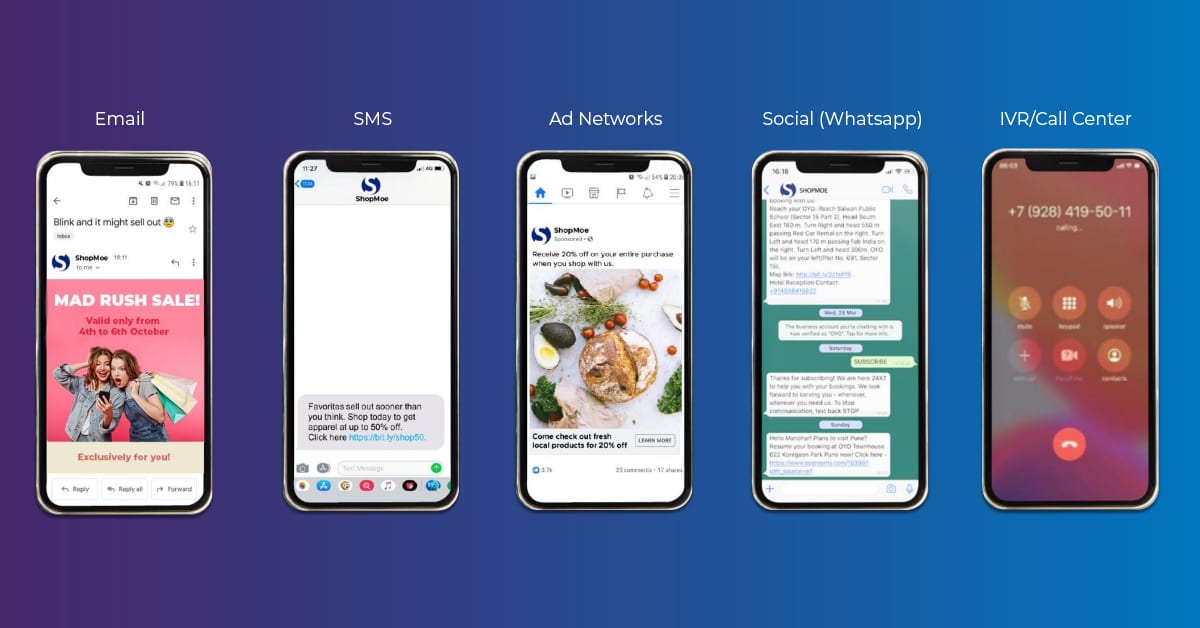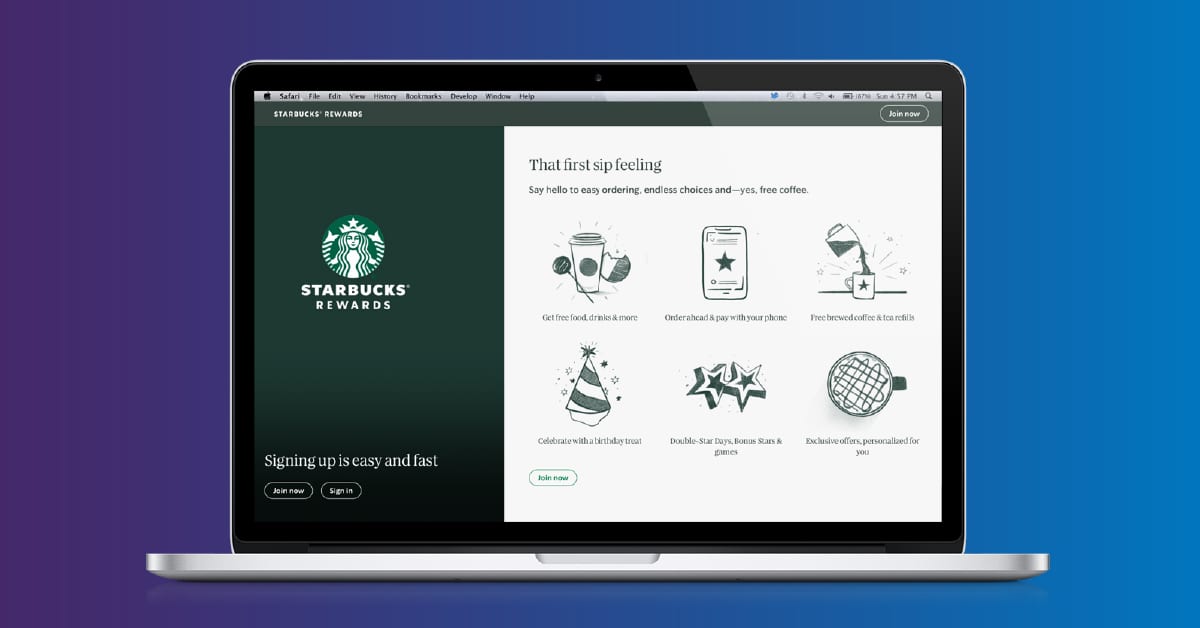Beginner’s Guide to Omnichannel Marketing


Engage Customers Across Mobile and Website
Omnichannel marketing integrates both offline and different online channels such as website, mobile ads, social media, and email to create a unified experience for the customer at every touchpoint and ensures that your brand is visible on the internet.

How to Use Omnichannel Marketing for Different Customer Phases
Onboarding
Send personalized emails and how-to-guides to keep customers interested
Engagement
Send relevant messaging/offers and event-based notification
Conversion
Send hyper-personalized emails and push notifications
Retention
Keep the communication going and introduce loyalty programs
Starbucks Employs Omnichannel Marketing to Provide Seamless Customer Experience
Starbucks Rewards incentivizes repeat visits with a loyalty program that can be managed online, via the app, on the phone, and in stores, thus helping in building a loyal customer base.

To understand how brands have successfully implemented omnichannel marketing
Download NowFrequently Asked Questions
What is omnichannel?
Omnichannel as a cross-channel content strategy that organizations use to improve customer experience. It means instead of using different channels (both offline and online) in isolation; you have to integrate and orchestrate them in a manner that they offer a consistent experience to the customer irrespective of the channel.
What is an omnichannel approach?
The omnichannel approach implies that organizations should make use of multiple channels while delivering consistent messaging across platforms to engage and retain customers.
What is omnichannel marketing?
Omnichannel marketing seamlessly integrates the different communication channels that businesses use to communicate with customers. This approach uses the customers’ perspectives and interests to optimize the consistency of the company’s marketing messages. By combining the strengths of each communication channel, marketing teams can use omnichannel marketing to deliver a more consistent and effective brand message.
What is omni-channel marketing give some examples?
Omni-channel marketing has successfully been adopted by various brands for enhances customer experience. Starbucks rewards program enables consumers to order in-app, collect in-store, collect stars and redeem them later on. Similarly, Travelodge makes use of dynamic onsite messaging and smart trigger web notifications to increase its booking and generate more revenue.
What are the benefits of omnichannel retailing?
Omnichannel retailing helps retailers in scaling their business and driving more traffic across all touch-points and brick-and-mortar store, thus providing multiple purchase channels readily available at the customers’ disposal.
What is the difference between omni and multi channel marketing?
The difference between omni and multi channel marketing is that, while omnichannel is about sending consistent and personalized messages across all channels, multichannel marketing is about managing every channel independently with their respective strategies, often leaving customers frustrated.
What are the benefits of creating an omnichannel brand experience?
The benefits of creating an omnichannel brand experience include saving time on manual tasks by automating them, segmenting audience, personalizing content as per different segments and thereby providing a personalized experience across all marketing channels.
Why is omnichannel marketing important?
Omnichannel marketing is important because consumers now rely on both online and in-store shopping experience. Brands need to adopt omnichannel marketing to offer seamless experience.
How do you build an omnichannel marketing strategy?
Building an omnichannel marketing strategy requires identifying all the channels your customers use, evaluate, and choose the right tools, create workflows to automate communication and offer omnichannel customer support.
